Last Updated on July 21, 2023 by Laura Thompson
Rabbits are adorable and popular pets known for their fluffy ears, twitchy noses, and energetic personalities. Taking care of a pet rabbit requires more than just providing food and shelter. It also involves understanding their health needs and ensuring they stay healthy. In this complete guide, we will explore various aspects of rabbit health and offer tips on how to keep them in optimal condition.
An Overview of Rabbit Anatomy and Physiology
Rabbits have unique anatomical and physiological features that contribute to their overall health. Understanding these aspects can help rabbit owners provide better care for their furry friends.
One vital feature is their dental structure. Rabbits have continuously growing teeth that require regular chewing to wear down. Providing adequate opportunities for chewing helps prevent dental issues in rabbits.
In addition to their dental structure, rabbits have other fascinating anatomical features. For instance, did you know that rabbits have a total of 28 teeth? These teeth are not only constantly growing, but they also have a unique arrangement. Rabbits have two pairs of upper incisors, one pair of lower incisors, and a set of premolars and molars at the back of their mouth. This dental arrangement allows them to efficiently chew and grind their food, ensuring optimal digestion.
Another important aspect is a rabbit’s digestive system. Rabbits are herbivores with a specialized digestive tract designed to handle a high-fiber diet. This system requires a constant supply of fiber-rich food to function properly. Additionally, rabbits have a sensitive gastrointestinal tract, and sudden dietary changes should be avoided to prevent digestive problems.
Speaking of the digestive system, let’s delve deeper into how rabbits process their food. When a rabbit ingests food, it goes through a two-step process called hindgut fermentation. This process involves the food passing through the stomach and small intestine, where the nutrients are absorbed, and then into the cecum, a specialized organ in the digestive system. The cecum is responsible for breaking down fibrous material, such as cellulose, into simpler compounds that can be absorbed by the rabbit’s body. Amazingly, rabbits have the ability to re-ingest their own feces, known as cecotropes, to extract even more nutrients from their food. This unique adaptation allows them to maximize their nutritional intake from their herbivorous diet.
Furthermore, rabbits have a highly efficient circulatory system. Their heart pumps blood at a rapid rate, ensuring that oxygen and nutrients are efficiently delivered to all parts of their body. In fact, rabbits have such a high metabolic rate that their heart can beat up to 150 times per minute! This efficient circulatory system also helps rabbits regulate their body temperature, which is crucial for their overall well-being.
Rabbits possess a range of unique anatomical and physiological features that contribute to their overall health and well-being. From their continuously growing teeth to their specialized digestive system and efficient circulatory system, understanding these aspects can help rabbit owners provide the best possible care for their furry friends.
Common Health Issues in Rabbits
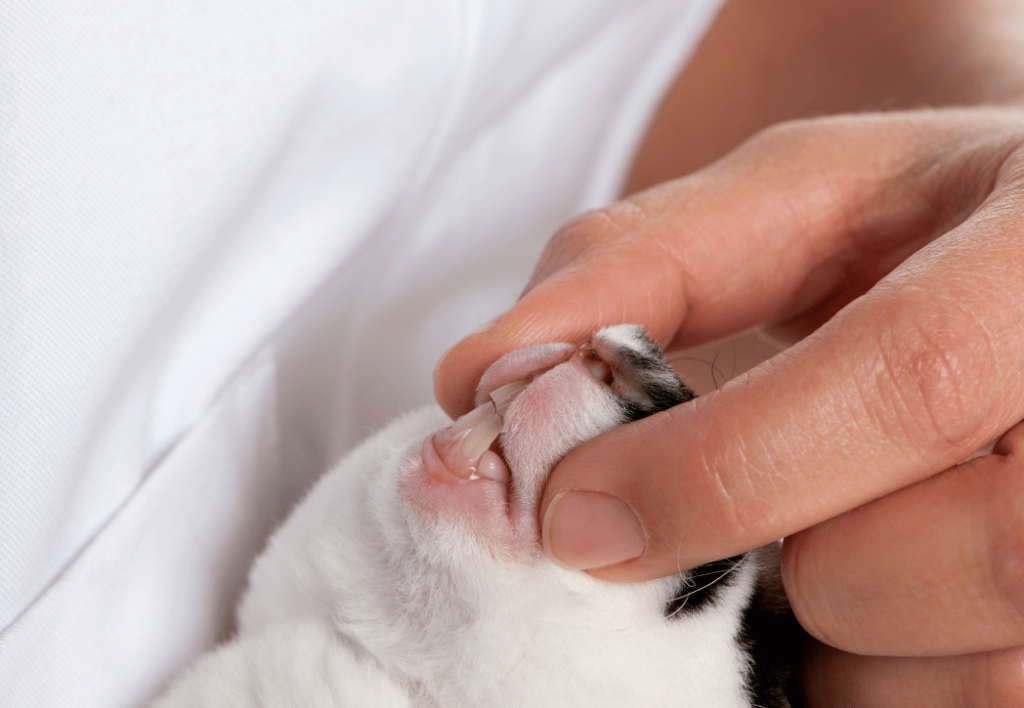
Like any other living creature, rabbits are susceptible to various health issues. Being aware of these common problems can help rabbit owners identify and address them promptly.
Gastrointestinal stasis is a prevalent issue in rabbits, characterized by a slowdown or complete cessation of the digestive system. This condition often results from an inadequate diet or lack of exercise. Signs of gastrointestinal stasis include a decrease in appetite, reduced fecal production, and a lethargic demeanor. If left untreated, it can be life-threatening.
It is important to note that rabbits have a unique digestive system that requires a high-fiber diet. A lack of fiber can lead to gastrointestinal stasis, as the rabbit’s digestive system relies on a constant flow of fibrous material to keep it functioning properly. Providing a diet rich in hay, fresh vegetables, and limited amounts of pellets can help prevent this issue.
In addition to diet, exercise plays a crucial role in maintaining a rabbit’s digestive health. Rabbits need ample space to hop, run, and play, as physical activity stimulates their digestive system and prevents stasis. Providing a safe and spacious environment, both indoors and outdoors, can help keep your rabbit’s digestive system in good working order.
Dental problems, such as malocclusion, are also common in rabbits. Malocclusion refers to misaligned teeth, leading to uneven wear and potential pain. Regular dental check-ups and providing appropriate chew toys can help prevent and manage dental issues.
Rabbits’ teeth grow continuously throughout their lives, and proper dental care is essential to prevent malocclusion. Chewing on hay, grass, and chew toys helps wear down their teeth naturally and prevents them from becoming overgrown. Additionally, regular veterinary examinations can detect any dental abnormalities early on and allow for timely intervention.
Furthermore, providing a varied diet that includes tough, fibrous foods can help promote proper tooth wear and prevent dental problems. Offering a variety of vegetables, such as carrots, celery, and broccoli, can provide the necessary chewing exercise to keep your rabbit’s teeth healthy.
It is important to note that dental issues in rabbits can cause discomfort and affect their overall well-being. If you notice any signs of dental problems, such as drooling, difficulty eating, or weight loss, it is crucial to seek veterinary care promptly.
Preventing Parasites in Rabbits
Parasites are a concern for rabbits, particularly external parasites like fleas and ticks. These pesky critters can cause skin irritation, itching, and other discomforts for rabbits.
Regular grooming, including inspecting the fur for any signs of parasites, is essential. Rabbits are meticulous groomers themselves, but they may need a little help from their human caretakers. Gently combing through their fur with a flea comb can help remove any fleas or ticks that may have hitched a ride on their soft coats.
But why stop at just grooming? Creating a soothing spa-like experience for your rabbit can not only help prevent parasites but also strengthen the bond between you and your furry friend. Consider giving your rabbit a relaxing bath using a mild, rabbit-safe shampoo. This not only helps keep their fur clean but also washes away any potential parasite eggs or larvae that may be lurking.
In addition to physical checks, anti-parasitic treatments recommended by veterinarians can help keep rabbits parasite-free. These treatments come in various forms, such as topical solutions or oral medications, and are designed to kill or repel parasites. It is crucial to consult with a veterinarian before administering any anti-parasitic treatment to ensure the safety and effectiveness for your rabbit.
Another important aspect of preventing parasites in rabbits is maintaining a clean living environment. Rabbits are known for their love of chewing and exploring, which means they can come into contact with potential sources of infestation. Regularly cleaning and disinfecting their living space, including their cage or hutch, can help eliminate any parasites or eggs that may be present.
Furthermore, paying attention to the outdoor surroundings can also play a role in parasite prevention. Rabbits love to venture outdoors and nibble on grass and plants, but tall grass or dense shrubs can harbor parasites. Ensuring that your rabbit’s outdoor play area is well-maintained and free from overgrown vegetation can minimize the risk of infestation.
Additionally, providing your rabbit with a balanced diet and proper nutrition can help boost their immune system, making them less susceptible to parasites. A diet rich in fresh hay, leafy greens, and high-quality pellets can support their overall health and well-being.
Remember, prevention is key when it comes to protecting your rabbit from parasites. Regular grooming, anti-parasitic treatments, a clean living environment, and a healthy diet are all essential components of parasite prevention. By taking these proactive measures, you can ensure that your rabbit remains happy, healthy, and free from pesky parasites.
Signs of a Healthy Rabbit
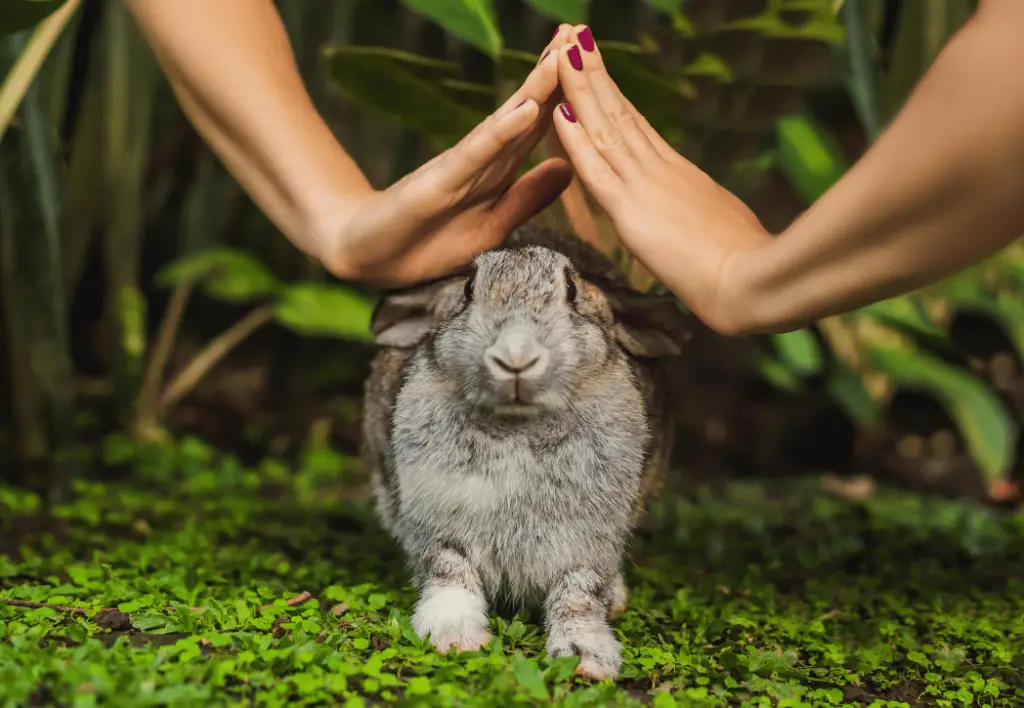
Being able to recognize signs of a healthy rabbit is crucial for rabbit owners. It allows them to detect any potential health issues early and ensure prompt veterinary care.
A healthy rabbit should have a good appetite, maintaining a stable weight. This means that they will eagerly consume their daily portion of fresh hay, vegetables, and pellets. Rabbits are herbivores, and a balanced diet is essential for their overall well-being. It is important to note that sudden changes in appetite or weight loss can be indicative of underlying health problems and should be addressed promptly.
In addition to a healthy appetite, a rabbit’s fur should be clean, soft, and free from mats. Rabbits are fastidious groomers and spend a significant amount of time cleaning themselves. Their fur should have a lustrous sheen and feel silky to the touch. Regular brushing can help prevent matting, especially in long-haired breeds. Mats can not only be uncomfortable for the rabbit but can also lead to skin irritation and potential health issues.
The eyes of a healthy rabbit should be bright and clear, without any discharge. Rabbits have large, expressive eyes that should appear alert and free from any signs of redness, swelling, or cloudiness. Discharge, crustiness, or excessive tearing can be indicative of an eye infection or other ocular issues. Regularly checking the eyes can help detect any abnormalities early and ensure appropriate treatment.
Additionally, rabbits should be alert, active, and exhibit normal mobility. A healthy rabbit will be curious about their surroundings, with ears erect and constantly moving to pick up sounds. They will engage in regular exercise, hopping and running around their environment. Any noticeable changes in behavior, such as lethargy, reluctance to move, or difficulty in hopping, can be signs of pain or illness. Prompt veterinary attention should be sought if such changes are observed.
Regularly monitoring these indicators of good health can help rabbit owners identify any changes that may require further attention. It is important to remember that rabbits are prey animals and may hide signs of illness until they are quite advanced. Therefore, being vigilant and proactive in assessing their overall well-being is crucial for their long-term health and happiness.
Top Tips for Rabbit Nutrition
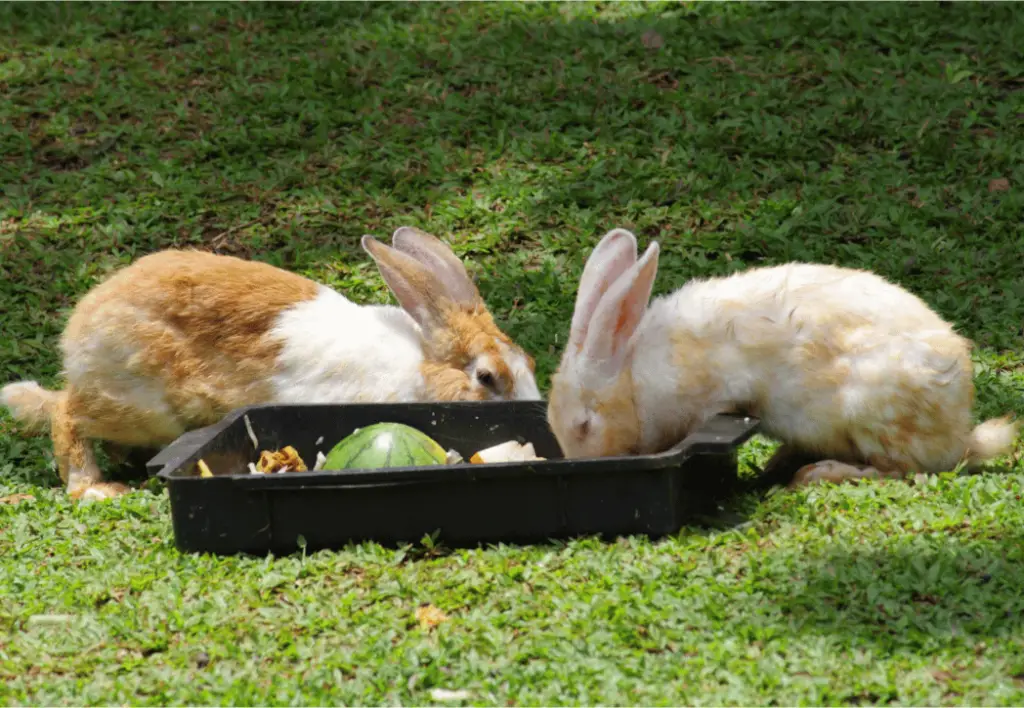
Proper nutrition plays a vital role in maintaining a rabbit’s overall health and well-being. A well-balanced diet promotes good digestion, prevents obesity, and provides essential nutrients for growth and energy.
Rabbits require a diet primarily consisting of fresh hay, such as Timothy or orchard grass, which helps maintain healthy digestion and wears down their continuously growing teeth. Leafy greens and vegetables should also be provided daily, while commercial rabbit pellets offer additional nutrients.
When it comes to hay, it’s important to choose high-quality hay that is free from dust, mold, and pests. Hay should be the main component of a rabbit’s diet, making up about 80% of their daily food intake. The long fibers in hay help keep a rabbit’s digestive system functioning properly and prevent the formation of hairballs.
Leafy greens and vegetables provide essential vitamins and minerals to a rabbit’s diet. Examples of suitable greens include romaine lettuce, kale, spinach, and cilantro. However, it’s important to introduce new greens gradually to avoid digestive upset. A variety of vegetables, such as carrots, bell peppers, and broccoli, can also be offered in small amounts to add variety to their diet.
Commercial rabbit pellets can be a convenient way to ensure your rabbit gets all the necessary nutrients. Look for pellets that are high in fiber and low in fat and sugar. However, pellets should only make up about 5% of a rabbit’s daily food intake, as they are more concentrated and can lead to obesity if overfed.
Water is another essential component of a rabbit’s diet. Fresh, clean water should always be available, either in a water bottle or a heavy ceramic bowl. It’s important to check the water supply daily and ensure it is not contaminated or empty.
While fruits can be a tasty treat for rabbits, they should be given sparingly due to their high sugar content. Fruits should only make up about 5% of a rabbit’s diet and should be introduced gradually to prevent digestive issues. Suitable fruits include apples, berries, and melons.
It’s crucial to be mindful of portion control and avoid overfeeding fruits and treats, which can lead to weight gain and digestive problems. Obesity in rabbits can lead to a range of health issues, including joint problems and reduced lifespan. Regular exercise, such as supervised playtime outside of the enclosure, can also help maintain a healthy weight.
Always consult a veterinarian for specific dietary recommendations based on your rabbit’s age, breed, and overall health. They can provide guidance on the appropriate amounts and types of food to ensure your rabbit receives a well-balanced diet that meets their individual needs.
Rabbit Exercise for Optimal Health
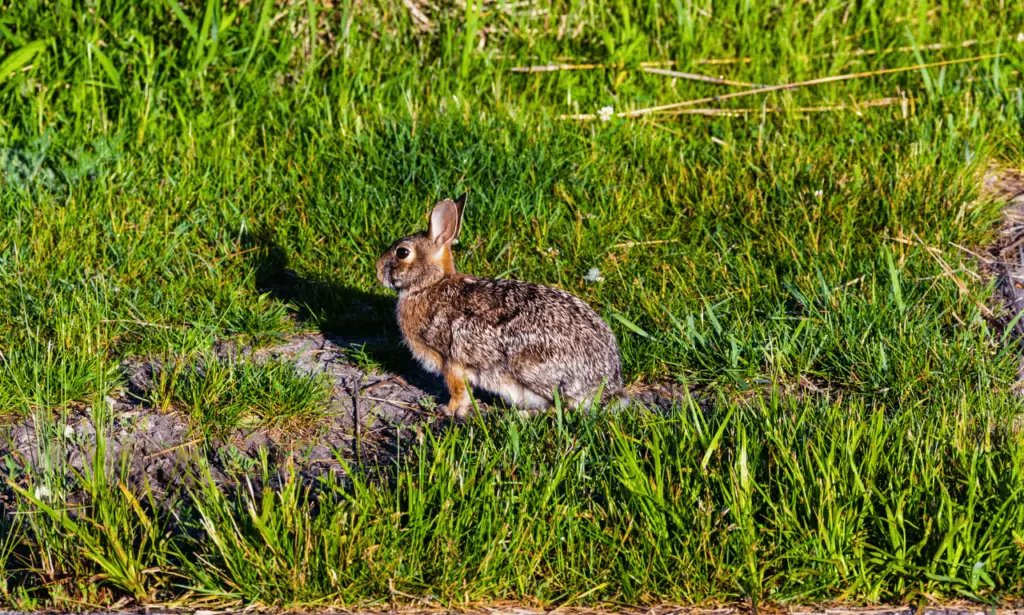
Exercise is essential for rabbits to lead a healthy and fulfilling life. It promotes physical fitness, mental stimulation, and prevents obesity.
Rabbits should have ample space to hop, run, and play. Providing a rabbit-proofed area indoors or a secure outdoor enclosure allows them to enjoy supervised exercise. This not only ensures their safety but also provides them with the opportunity to explore their surroundings. Rabbits are naturally curious creatures, and by creating a stimulating environment, we can encourage their natural behaviors and instincts.
In addition to providing a secure space, it is important to offer a variety of toys, tunnels, and obstacles to further enhance their physical activity and mental stimulation. Rabbits love to chew, so providing them with safe and appropriate chew toys not only keeps them entertained but also helps maintain their dental health. Tunnels and obstacles provide opportunities for rabbits to jump, climb, and navigate their environment, keeping their bodies active and agile.
Regular exercise is not only beneficial for a rabbit’s physical well-being but also helps prevent muscle and joint problems. Just like humans, rabbits can develop muscle weakness and joint stiffness if they lead a sedentary lifestyle. By engaging in regular exercise, rabbits can maintain their muscle tone and joint flexibility, reducing the risk of such issues.
Furthermore, exercise plays a crucial role in preventing obesity in rabbits. Obesity can lead to a range of health problems, including heart disease, diabetes, and arthritis. Regular exercise helps rabbits burn calories and maintain a healthy weight, ensuring optimal overall health.
Providing rabbits with ample space, stimulating toys, and regular exercise is essential for their optimal health and well-being. By promoting physical fitness, mental stimulation, and preventing obesity, we can ensure that our furry friends live a long, happy, and healthy life.
The Role of Socialization in Rabbit Health
Rabbits are social animals that thrive in an environment with companionship and interaction. Socialization plays a crucial role in their overall well-being.
When it comes to rabbit health, socialization is not just a luxury but a necessity. Rabbits are highly social creatures that have evolved to live in groups. In the wild, they form tight-knit communities where they communicate, groom each other, and seek comfort in one another’s presence. Therefore, it is essential for pet rabbits to have the opportunity to engage in social interactions as well.
Consider having more than one rabbit in your household. By providing companionship to each other, rabbits can fulfill their social needs and establish strong bonds. Having a bonded pair or a small group of rabbits can significantly enhance their mental and emotional well-being. They will have someone to play with, groom, and snuggle up to, which can prevent loneliness and alleviate stress.
However, even if you have only one rabbit, you can still ensure they receive the necessary socialization. Spending quality time with your rabbit daily is crucial. Interact with them, handle them gently, and provide them with opportunities for exercise and play. This will not only strengthen the bond between you and your rabbit but also provide them with mental stimulation and physical exercise, which are vital for their overall health.
It is important to note that socialization should start from a young age. By introducing rabbits to new environments, people, and experiences early on, you can help them become more adaptable and less prone to stress-related health issues. Exposing them to different sights, sounds, and smells can enrich their lives and make them more confident in unfamiliar situations.
When socializing your rabbit, it is crucial to create a safe and secure environment. Rabbits can be sensitive to sudden changes or new experiences, so it is important to introduce them gradually and at their own pace. Always supervise interactions with other animals and ensure that the introductions are done in a controlled and supervised manner.
Socialization is a vital aspect of rabbit health. It not only prevents loneliness, depression, and destructive behaviors but also promotes mental and emotional well-being. Whether it is through providing companionship or spending quality time with your rabbit, socialization is a key factor in ensuring a happy and healthy life for your furry friend.
Grooming to Maintain Rabbit Health
Grooming is essential for maintaining a rabbit’s health and ensuring their comfort. Regular grooming sessions help prevent matting, remove loose fur, and keep their coat in good condition.
Brushing a rabbit’s fur regularly helps remove loose hair and prevents fur ingestion, which can lead to digestive problems. Proper nail trimming is also necessary to prevent overgrowth and discomfort when walking.
Certain breeds may require additional grooming, such as regular ear cleaning for rabbits with floppy ears.
The Importance of Vaccinations for Rabbits
Just like other pets, rabbits can benefit from vaccinations to protect them against certain diseases.
The most common vaccine for rabbits is against viral hemorrhagic disease (VHD) and myxomatosis. These are highly contagious and often fatal diseases for rabbits. Vaccination is crucial in preventing their spread and ensuring the rabbit’s health and longevity.
Consult with a veterinarian to determine the appropriate vaccination schedule for your rabbit, as it may vary depending on regional risks and the rabbit’s lifestyle.
The Benefits of Regular Vet Visits
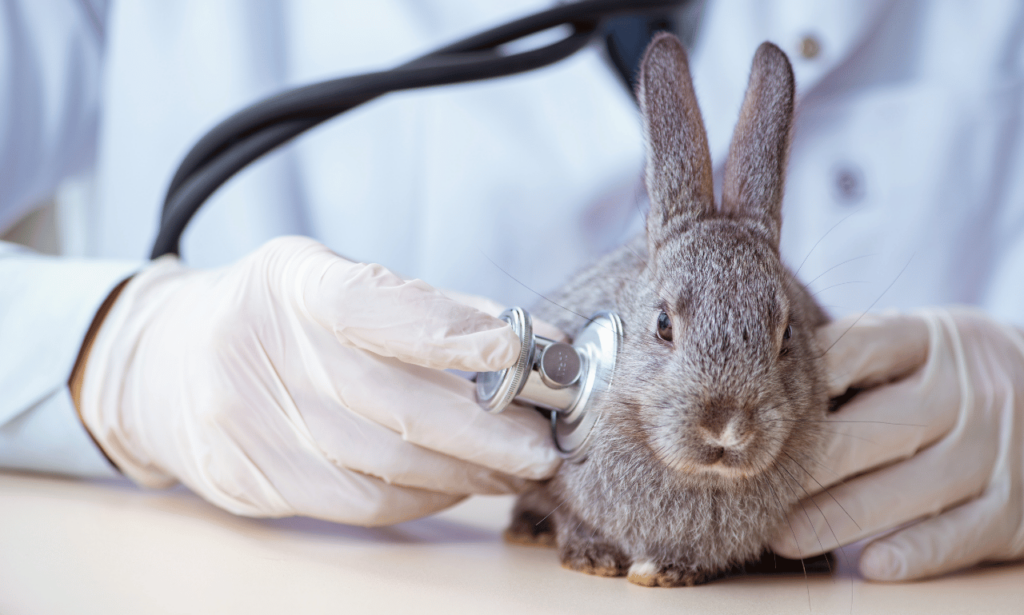
Regular veterinary care is essential for maintaining the health and well-being of rabbits. Preventive veterinary visits allow early detection of health issues and prompt intervention, often preventing further complications.
Veterinarians can provide comprehensive examinations, administer vaccines, and offer advice tailored to the specific needs of your rabbit. They can also provide guidance on preventive care, such as tooth trimming and parasite control.
Establishing a good relationship with a knowledgeable rabbit veterinarian ensures that your furry friend receives the best care throughout their life.
Rabbit health is a multifaceted subject that requires ongoing attention and care. By understanding the unique needs and potential health issues of rabbits, owners can provide the necessary care to ensure their pets lead happy, healthy lives. Remember, a well-informed and proactive approach is key to maintaining the health and well-being of your lovable bunny companion.
Laura is an experienced wildlife rehabilitator and conservationist residing in Madison, Wisconsin. Her love for rabbits was sparked during her early career when she nursed an injured wild rabbit back to health. Today, she runs “Hoppy Haven”, a rehabilitation center dedicated to the care and release of injured wild rabbits.
